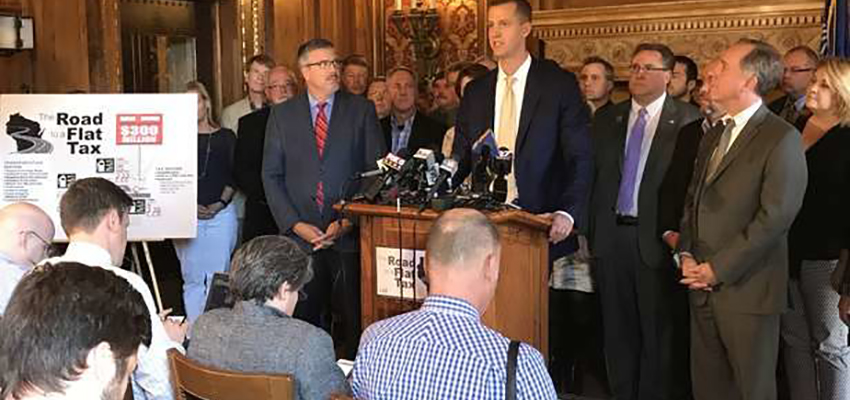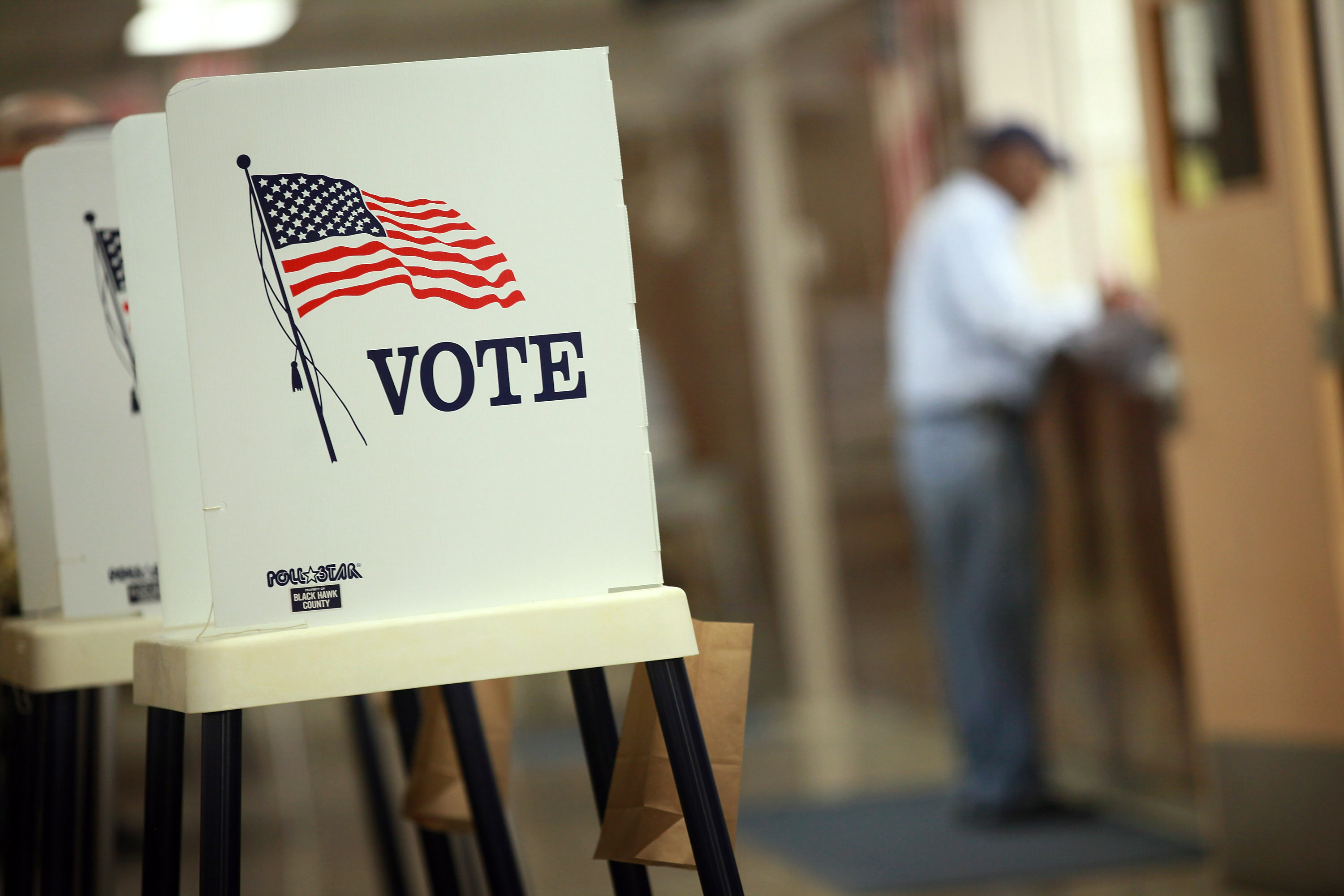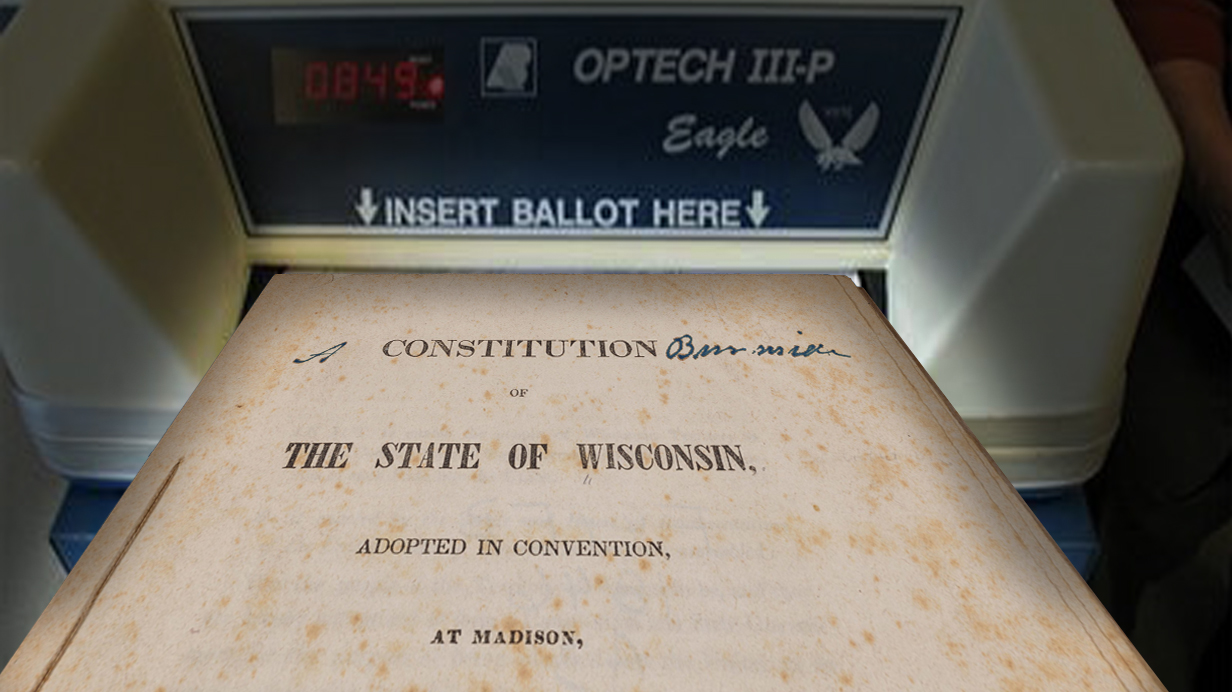 [bctt tweet=”Flattening WI’s hefty progressive tax would require filling loopholes, ending special favor tax credits, & cutting govt spending. More than anything, it would require the political will. #wiright #wipolitics ” username=”MacIverWisc”]
[bctt tweet=”Flattening WI’s hefty progressive tax would require filling loopholes, ending special favor tax credits, & cutting govt spending. More than anything, it would require the political will. #wiright #wipolitics ” username=”MacIverWisc”]
MacIver News Service | Sept. 20, 2018
By M.D. Kittle
MADISON – State Rep. Dale Kooyenga isn’t backing down on his ambitious plan to move Wisconsin to a flat income tax state.
In fact, the Brookfield Republican who is exiting the Assembly to run for the state Senate seat being vacated by Republican Leah Vukmir says he wants to make bold tax reform a priority in the next legislative session.
“We need to have a big, bold proposal, and that can’t just be a two-year vision…Visions don’t condense themselves into 24-month budget cycles or election cycles,” Kooyenga said.
Kooyenga will first have to win in November. If he does that, the CPA/lawmaker will have to sell his under-4 percent flat income tax proposal to a legislative body that was cool at best to the idea in the last session.
In an interview this week with MacIver News Service, Kooyenga said he would push his “Road to a Flat Tax” package in the Senate, as he did last year in the Republican-controlled Assembly. The proposal garnered support there from GOP leadership and rank-and-file Republicans, but it was mostly met with shoulder shrugging in the Senate.
“We need to have a big, bold proposal, and that can’t just be a two-year vision,” Kooyenga said. “Visions don’t condense themselves into 24-month budget cycles or election cycles.”
He still wants to see a flat tax for Wisconsin income taxpayers that is lower than Illinois’ 4.95 percent rate. That won’t happen over night. Flattening Wisconsin’s hefty progressive tax would require filling loopholes, ending special favor tax credits, and cutting government expenditures.
More than anything, it would require the political will to do all of the above. And such fortitude has been hard to come by in modern-day politics.
“At a philosophical level tax reform is really easy. You say, ‘We’re going to get rid of these tax deductions and credits and we’re going to lower the overall rates.’ Then the distribution table comes out,” Kooyenga said. And then the political wars are waged – somewhere between the old chestnut of class warfare on the left and cronyism-based tax credits on the right.
Kooyenga’s 2017 package called for a 3.95 percent flat income tax rate implemented over a decade. In an analysis, the Legislative Fiscal Bureau projected over $2 billion in annual income tax cuts with the full implementation of the flat tax.
Kooyenga’s 2017 package called for a 3.95 percent flat income tax rate implemented over a decade. In an analysis, the Legislative Fiscal Bureau projected over $2 billion in annual income tax cuts with the full implementation of the flat tax.
Kooyenga’s proposal is similar to the MacIver Institute’s “Glide Path To A 3% Flat Income Tax,” released in January 2017.
To pay for the tax cuts, Kooyenga’s reform plan proposed the elimination or reduction of several tax credits, including:
Marriage Credit – “The proposal eliminates the credit in order to promote tax code simplicity, fairness and assist in paying for the flat tax,” the plan document asserts.
Property Tax/Rent Credit – Would repeal the credit for renters.
Electronics Recycling Fee – Unique to Wisconsin, the fee calculation is “complicated and creates onerous paperwork,” Kooyenga wrote. “The fund associated with the fee is solvent and the fee is no longer required.”
Working Families Tax Credit – Kooyenga says the tax credit was created to serve as a bullet point on a press release. Less than 1 percent of Wisconsin filers qualify. Kooyenga asserts elimination will simplify the code.
“This was a tax credit made up for political purposes and kind of a gotcha moment in a press release, and no one really qualifies for that tax credit,” he said. “I’ve been trying to get rid of it for a long time.”
The Legislature axed the credit – which was collected by about 725 individuals in the previous filing season – but Gov. Scott Walker used his veto pen to restore it.
State. Rep. John Macco, (R-Ledgeview), chairman of the Assembly Ways and Means Committee, is leading the Legislature’s examination of the state’s troubled tax system. Earlier this year Macco said a sweeping overhaul could deliver $2.5 billion in increased revenue by cutting questionable state exemptions.
A mountain of tax breaks for this group or that has made reform a daunting task. Macco likes to point to the fact that Twix candy bars, for instance, are tax exempt while M&Ms are taxable under Wisconsin’s quirky system of exemptions. The state tax code is littered with similar examples.
Kooyenga said the committee is making progress, but it also is hearing an earful from various groups that want to hold on to their “special thing.”
Listen to the podcast of the conversation with Rep. Kooyenga here:




